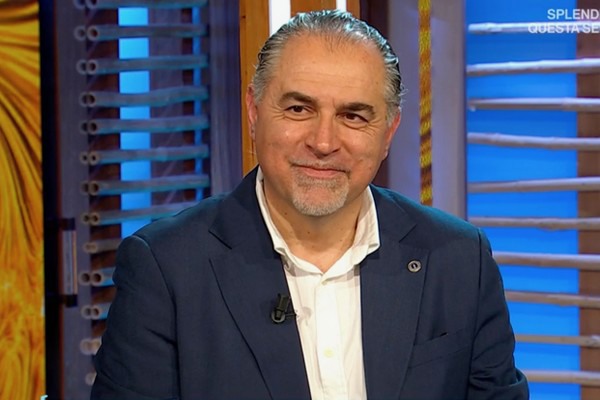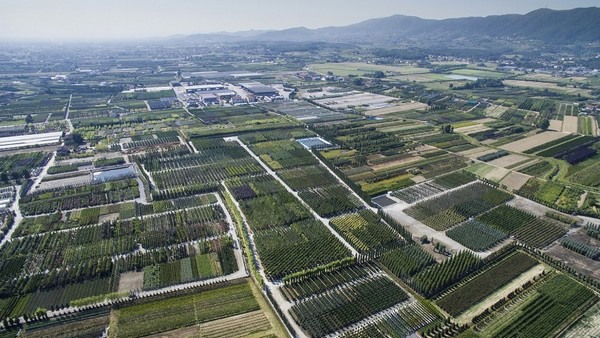Another three years in office for Prof. Francesco Ferrini, who was unanimously re-elected on 1 July by the assembly of the Pistoia Ornamental Nursery District (Distretto Vivaistico Ornamentale di Pistoia). His objectives include "internationalizing the District". Next steps: the start in September of a short supply chain project for the recycling of plastic pots from nurseries and the construction of the Phytosanitary Self-control Laboratory 'Pistoia Fitolab' by 2025.

Prof. Francesco Ferrini, full professor of arboriculture at the University of Florence, has been confirmed as president of the Pistoia Ornamental Nursery District, Italy's largest production hub for ornamental plants. A district that extends across five municipalities in the Pistoia province: Agliana, Montale, Pistoia, Quarrata, and Serravalle Pistoiese.
Ferrini's re-election as president of the district took place, with a unanimous vote of those present, during the district assembly held on Monday, 1 July evening at the headquarters of the GEA - Green Economy and Agriculture research center, in Pistoia. The mandate will last three years, until July 2027.
As Ferrini recalled in his introductory speech, in which he summarized what was done during his first term in office, there are three main projects carried out in this three-year period by the Pistoia Nursery District in cooperation with Associazione Vivaisti Italiani, the District's managing body.
The most important, which should see the light of day at GEA by the end of 2025, is the Phytosanitary Self-Control Laboratory, which "aims to improve the quality and safety of plant production through a self-control system based on laboratory analyses". The consortium that will manage it, 'Pistoia Fitolab', has already been set up and a request was recently made to the municipality of Pistoia for permission to build it.

The second major project mentioned by Ferrini in his speech is 'Da vaso a vaso' (From pot to pot): the agreement for a short supply chain for recycling plastic vases in the District's nurseries, which AVI has just recently announced will start next September.
The third, the most demanding from the investment and infrastructure point of view and still at an early stage, is the project for a 'Green Aqueduct' (Acquedotto verde) to recover and transport to Pistoia territory a portion of the wastewater from the San Colombano purification plant (located near Florence) for irrigation purposes. This project, as stressed by Ferrini, could guarantee the Pistoia area, not just the District, against the risk of drought in the future. A risk that does not seem to be present this year, but which could reoccur in the future.
In addition to these three major projects, Prof. Ferrini dwelt on the activities carried out for professional training, which has been "a fundamental pillar of our mandate". "We have collaborated and will collaborate even more closely in the future," said Ferrini, "with schools, universities and research institutes to offer training and refresher courses to nurserymen, with the aim of improving technical skills and promoting the adoption of sustainable practices. Our commitment to training has helped to create a new generation of nurserymen who are prepared and aware of the challenges ahead".
After being re-elected, President Ferrini stated that among the objectives of the next mandate there is that of "internationalizing the District, that is, making its importance better understood abroad". All this always under the banner of the keywords 'eco-sustainability' and 'competitiveness', because, as he pointed out, "you are not competitive if you are not sustainable and you are not sustainable if you are not competitive".
For more information: Associazione Vivaisti Italiani
Associazione Vivaisti Italiani
www.vivaistiitaliani.it
